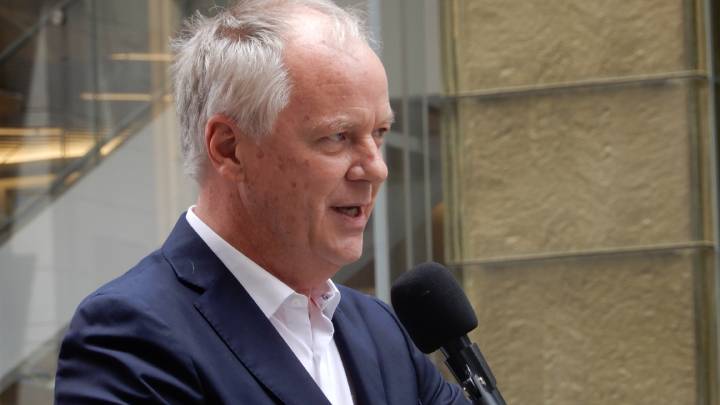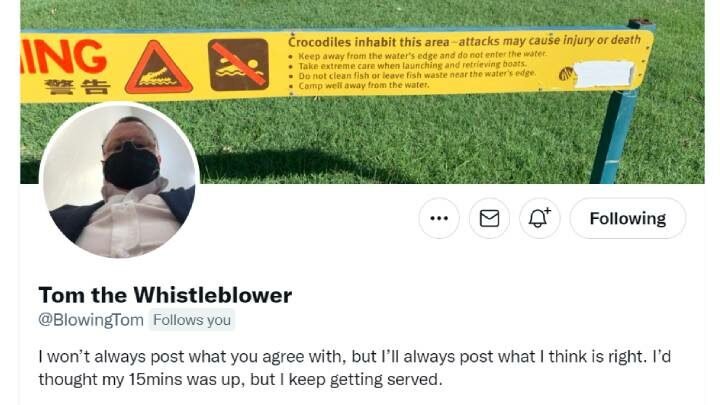
For those who haven’t been watching, early last year federal parliament was rocked by the revelations around the Brittany Higgins sexual assault and its subsequent coverup, as well as the historical rape allegations involving now expired minister Christian Porter.
Then, as the Morrison government attempted to contain the public outrage over a sex crime having taken place in the seat of government, as well as those allegedly having been perpetrated by a government minister, a third bombshell regarding a sex in parliament scandal dropped.
As the prime minister stood before the press to address this extremely inconvenient third instalment, one could almost see Morrison wiping the egg from his face.
In late March, documented evidence was revealed, involving senior male staffers in Parliament House exposing themselves in photos, footage of one masturbating on a female MPs desk, stories of calling in sex workers, as well as allegations of staffers and MPs having sex in the prayer room.
“Now is the time to speak up. Now is the time to put it on the record. It is a culture of men thinking that they can do whatever they want,” Tom the Whistleblower told Channel 10, in relation to why he leaked the evidence he was privy to after having met a parliament staffer on Grindr a decade prior.
And, on 18 December, while the rest of the nation was focused on having a very Omicron Christmas, the AFP executed search warrants at two properties, seizing all Tom the Whistleblower’s electronic devices and correspondence with journalists, claiming it was investigating the crime of revenge porn.
Silencing uncomfortable truths
“If he committed an offence under that legislation, the case is already apparent. The evidence is already there,” outlined lawyer Mark Davis. “The police already had the evidence that he circulated those images.”
“So, why do they need to raid his house to secure them?” he questioned. “The short answer is, they don’t.”
Davis is representing Tom in relation to the current criminal investigation, and he’d also provided legal representation in one of a series of civil actions against the whistleblower filed last year regarding the leaked images, which were designed to “shut him up”.
The AFP raids involved a property in Canberra and another in Queensland. Officers seized laptops, phones, hard drives and USBs. And the warrants also stipulated that Tom must hand over all messages and images shared with staffers and journalists over encrypted messaging services.
“Tom is a whistleblower,” Davis told Sydney Criminal Lawyers. “He was exposing disgraceful behaviour in our parliament against multiple people. It is behaviour that deserved to be revealed and deserved to be acted upon.”

Revenge government
Threatening revenge porn charges against a man who exposed the sexual indiscretions of a group of male government staffers – which they themselves had been circulating images of over the five years to 2020 – seems like a rather long bow to draw.
The ACT Legislative Assembly passed the Crimes (Intimate Image Abuse) Amendment Bill 2017, which inserted section 72C into the Crimes Act 1900 (ACT). The offence of non-consensual distribution of intimate images carries up to 3 years inside and/or a $48,000 fine.
Described by Davis as “very loosely worded legislation” that’s “so broad, it’s frightening”, the revenge porn laws were a response to widespread reports of men posting images of young women online, but it seems they can also be applied to silence parliamentary scandals.
“If he committed an offence under that legislation, the case is already apparent,” the lawyer continued. “The evidence is there.”
An endangered species
Rather than seeking any revenge, Tom was aiming to expose the obscene conduct taking place in Australian Parliament House. The whistleblower had taken the story to the ABC in November 2019, and when it chose not to pursue it, he approached Channel 10 last February.
These days a well-known Twitter commentator, @BlowingTom made clear on 25 March last year, that despite Scott Morrison having claimed that none of the lewd acts had taken place during his tenure, the PM had lied, as many of the incidents did take place since he took office.
But it’s not only the recurring lying that seems to be a signature of the current Coalition government, as so too is the persecution of whistleblowers, along with the co-opting of law enforcement and security agencies to this effect.
Five years after ASIO raided their homes in relation to the matter, then attorney general Porter greenlighted the prosecutions of Witness K and his lawyer Bernard Collaery over having exposed the 2004 illegal bugging of the East Timorese cabinet office by the Howard government.
Porter also gave the thumbs up for the legal persecution of former ADF lawyer David McBride, who is currently facing half a century in prison over having exposed multiple war crimes committed by Australian troops in Afghanistan to the media, after he raised them internally only to be ignored.
Former ATO officer Richard Boyle followed the law in internally raising issue with the practice of the misappropriation of citizens’ funds from their bank accounts, which the tax office was engaging in. But, after being ignored, he went to the press, and is now facing a very long time behind bars.
While, in June 2019, the AFP carried out two press raids in relation to whistleblowing. The first saw the home of News Corp journalist Annika Smethurst raided over some Home Affairs leaks, while the second involved raiding the Sydney ABC offices over the McBride revelations.
“The classic whistleblower scenario”
“How you get the AFP to engage itself in something of this nature is frankly disturbing,” Davis said, regarding the Tom the Whistleblower raids.
“The only logical inference is they were raiding his house not for the images that he circulated but to have a look at what else he may have. And I would suggest there are a lot of very nervous people – staff or otherwise – in Parliament House.”
Despite having raided his premises and confiscated all Tom’s electronic devices, law enforcement is yet to press any charges against the whistleblower. And, as his lawyer has clearly pointed out, the evidence was already in police hands if they wanted to proceed prior to the raids.
“This is a misapplication of policing when confronted with a whistleblowing report. When a crime or misdemeanour has been revealed, they crunch the person who reveals it, not the offender,” Davis concluded.
“This seems to be becoming the norm in policing and politics in Australia.”



